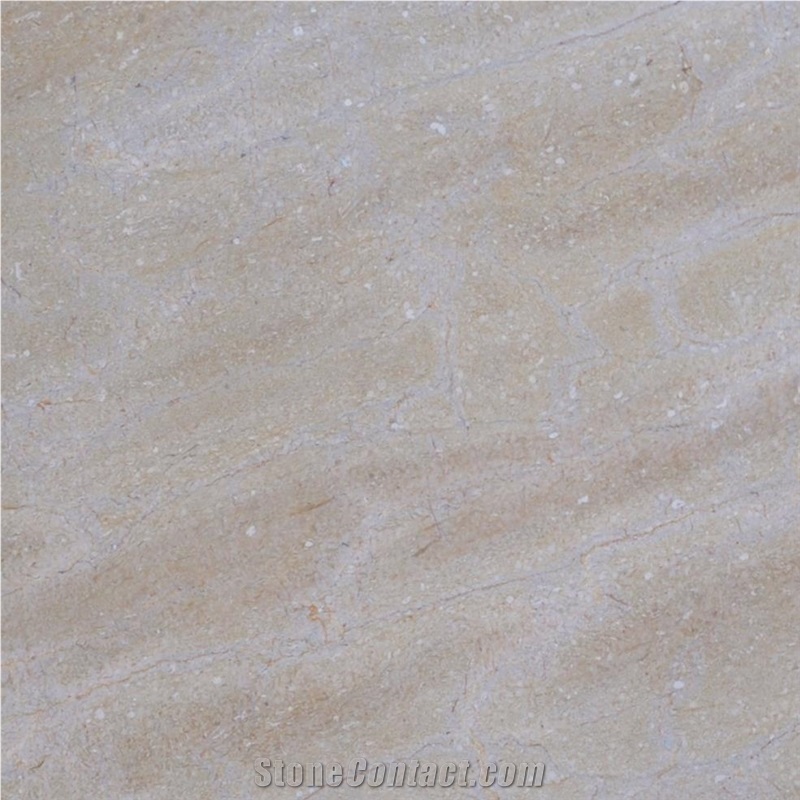Abadeh Iraji Marble
Order Now
About
Material Type: Marble
Origin: Iran
(Abadeh, Fars Province)
Iran
(Abadeh, Fars Province)
 Iran
(Abadeh, Fars Province)
Iran
(Abadeh, Fars Province)
Priamry Color(s): Beige
Recommended Usage:kitchen and bathroom countertops, monuments, stairs, building stone, ornamental stone, interior, exterior wall and floor applications, mosaic, waterjet pattern
Finishing Surface:Polished,Bush Hammered,Tumbled,Brushed,Honed,Split,Machine Cut,Natural Surface,Sandblasted,Acid Washing,Combed,Leathered,Water Jet,Filled,Chiseled,Pickling
Additional Names:Abadeh Marble
FAQ
Ask a Question

Can Iran's Abadeh Iraji Marble be used in landscaping?
Yes, Irans Abadeh Iraji Marble can be used in landscaping. This type of marble is known for its unique patterns and colors, which can add aesthetic appeal to outdoor spaces. It can be used for various landscaping features such as paving, patios, walkways, garden walls, and decorative elements. The durability and natural beauty of Abadeh Iraji Marble make it suitable for both residential and commercial landscaping projects.
show more
hide

How thick is Iran's Abadeh Iraji Marble slabs?
The thickness of Irans Abadeh Iraji Marble slabs can vary, but most commonly, they are available in thicknesses of 2 cm (0.78 inches) and 3 cm (1.18 inches).
show more
hide

Can Iran's Abadeh Iraji Marble be used in a dining room?
Yes, Irans Abadeh Iraji Marble can be used in a dining room. Marble is a popular choice for dining rooms because of its luxurious and elegant appearance. It can be used for flooring, tabletops, or even accent walls in a dining room. The light color and natural veining of Abadeh Iraji Marble can add a sophisticated touch to the room, creating a stylish and timeless atmosphere.
show more
hide

Are there color variations of Iran's Abadeh Iraji Marble?
Yes, there are color variations of Irans Abadeh Iraji Marble. The marble typically has a white or cream base color with beautiful contrasting veining patterns in various colors such as black, brown, gray, and sometimes even pink or green. The specific color variations can vary from one slab to another, making each piece unique.
show more
hide

Is Iran's Abadeh Iraji Marble an expensive stone?
I do not have access to current market prices, but in general, Abadeh Iraji Marble is considered a high-end stone with a relatively high price range due to its unique texture and appearance. The price can also vary depending on factors such as size, quality, and origin.
show more
hide

Can Iran's Abadeh Iraji Marble be used exterior applications in very dusty climates?
Abadeh Iraji Marble from Iran is a popular and high-quality marble known for its unique patterns and colors. While it is commonly used in interior applications such as flooring, countertops, and wall cladding, its suitability for exterior applications in very dusty climates may vary.
Marble, in general, is a natural stone that is susceptible to weathering and erosion over time. In dusty climates, the accumulation of dust particles can settle on the marble surface, potentially leading to staining, discoloration, and a dulling effect. However, proper care, maintenance, and periodic cleaning can help mitigate these issues.
To enhance the durability and sustainability of Abadeh Iraji Marble in exterior applications, a few recommendations are:
1. Surface treatment: Applying a high-quality stone sealer or impregnator specifically designed for marble can help protect the surface from dust penetration, staining, and weathering.
2. Regular cleaning: Regularly cleaning the marble surface with a mild, pH-neutral stone cleaner and rinsing it with clean water can remove accumulated dust and keep it looking fresh.
3. Avoiding abrasive materials: Using abrasive or harsh cleaning tools, such as rough brushes or acidic cleaners, can damage the finish of the marble. It is important to select appropriate cleaning materials that are suitable for marble surfaces.
4. Protective measures: In areas with extreme dust and sandstorms, installing external protective measures such as awnings, canopies, or windbreakers can reduce direct exposure to dust and minimize the accumulation on the marble surface.
Despite these precautions, it is important to note that no natural stone is completely impervious to the effects of time, weather, and dusty climates. Regular maintenance, cleaning, and periodic resealing, if necessary, are essential to ensure the longevity and aesthetic appeal of Abadeh Iraji Marble in exterior applications.
show more
hide

What grade is Iran's Abadeh Iraji Marble?
Irans Abadeh Iraji Marble is generally considered to be of high quality and is often categorized as A grade.
show more
hide
Product & Prices
Post Your Request
*From:
*Request:
The request includes: 1. surface finished, size 2. quantity required
Send







